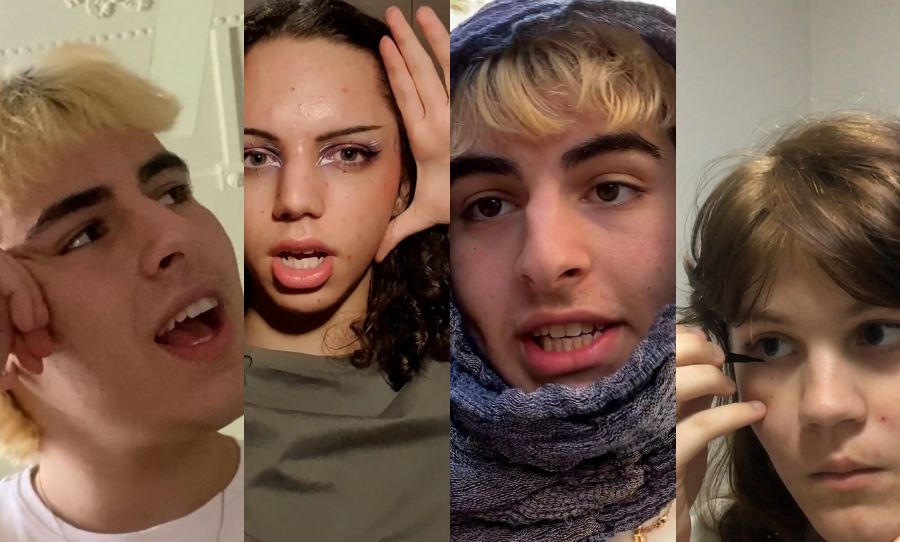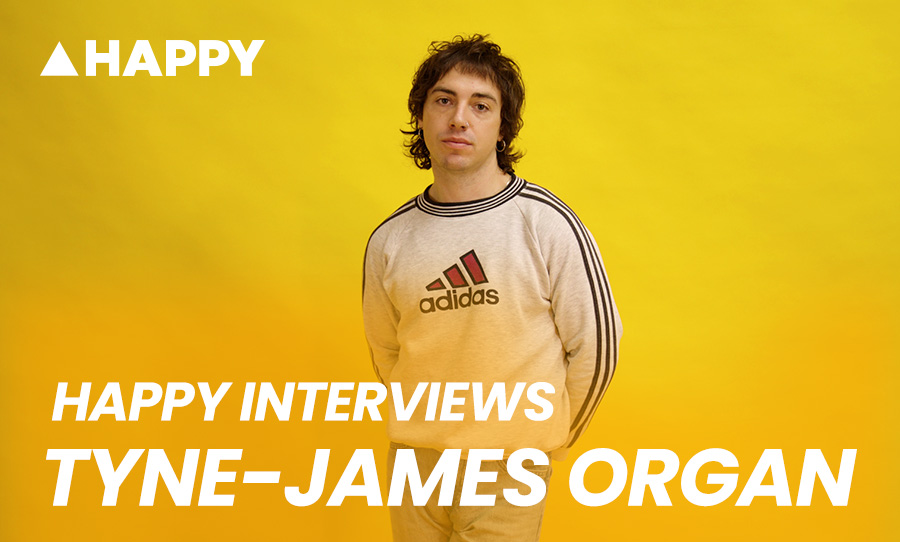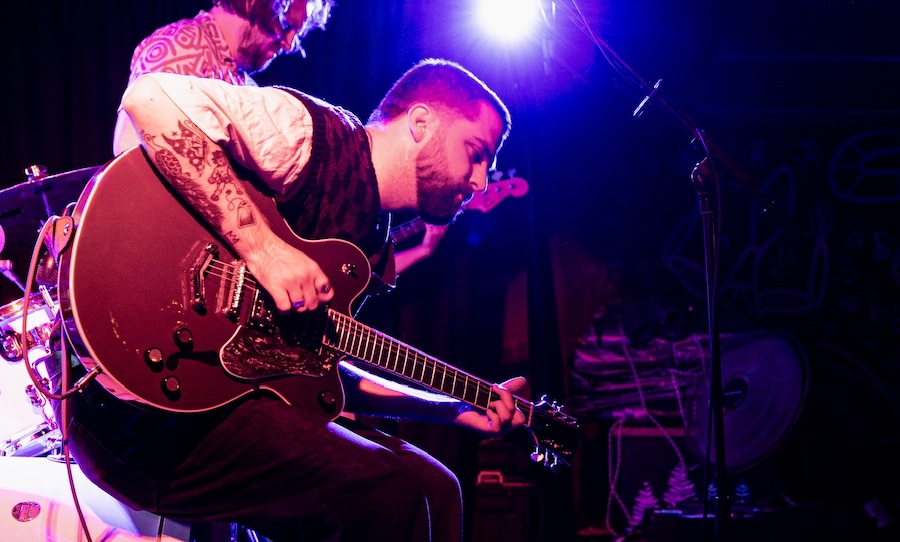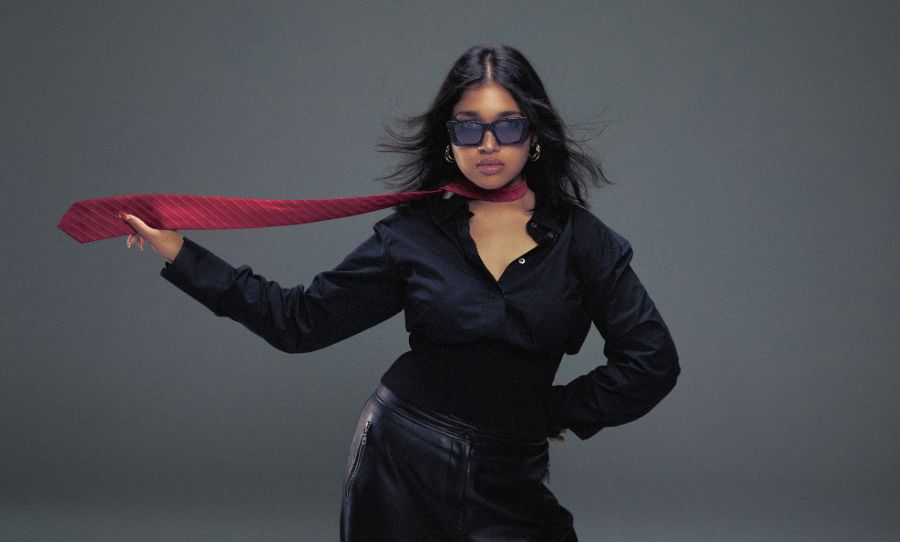“Unerased” flips the script, offering up a no filter, no holds barred journey through identity & youth.
We caught up with AP Pobjoy, the creative force behind “Unerased” to delve into the creation of the groundbreaking docuseries.
Launched on Instagram and TikTok on August 20, “Unerased” has flipped the script by letting the participants control their narratives, no filters involved. Over 17 episodes, we’re introduced to Lee, Felix, Theo, Neejay, Connor, Chloe, Ellie, Arwen, and Declan, as they take us on a no-holds-barred journey through the peaks and pitfalls of identity and youth.
View this post on Instagram
The brainchild of AP PobJoy, “Unerased” was born out of a realisation: young voices were conspicuously absent from discussions about their own lives. Handpicked from a whirlwind of nearly 100 applicants, the cast paints a vivid mosaic of experiences.
Editing these disparate stories into a cohesive narrative might seem Herculean, but the end result is genuine, unadulterated storytelling. Why Instagram and TikTok? Pobjoy’s answer is as crisp as it is strategic: that’s where the young guns are.
Pobjoy’s own voyage is woven into “Unerased,” making it more than a project—it’s a deeply personal mission. The series doesn’t just aim to entertain; it’s a call for empathy and a shift in perspectives. It invites viewers into a world they might not know, offering a fresh lens on teenage life.
Scroll down to check out interview with AP Pobjoy and watch episodes 2 – 4. Keep your eyes peeled for eps 5,6,7 dropping Friday.
View this post on Instagram
Happy: What inspired you to create the concept of Unerased and give young individuals like Felix and Lee a platform to share their stories?
AP Pobjoy: I was first inspired to create Unerased around two years ago now. During that time, there were rumours of anti-trans bills in the media that were discussing the rights and agency of transgender high school students in Australia.
I was shocked to find every interview or article about these bills was led by a policymaker, teacher or adult.
I didn’t see one trans young person let into a conversation that was ironically all about them.
In that moment I thought: what if we gave the microphone back to trans young people, for them to tell the world what it’s really like?
From then on, we set out to find trans young people who would be interested in vlogging their lives during the course of one school year to create a fully youth led project and to essentially, give back the conversation to trans youth.
Happy: Casting can be a crucial part of a project. Could you share some insights into the process of finding and selecting participants for Unerased?
AP Pobjoy: Casting was one of my favourite parts of the project, mostly because I got to spend my days talking to young trans people all over the country about their high school experiences and experiences of growing up.
Our team sent out a social media call out amongst queer organisations, leaders and agencies to see if there was any interest. Within 48 hours we had almost 100 applications from teenagers all across Australia who wanted to take part.
Every time I got on a video call to speak to these young people, they would all say the same thing: I have so much to say. Narrowing down nine participants from a pool of hundred was a hard thing to do!
Given all the beautiful stories we found from so many people. However, wanting to make sure there was a breadth of experiences in the show, and that there was diversity amongst the cast members, we ended up going with our cast of nine; Lee, Felix, Theo, Neejay, Connor, Chloe, Ellie, Arwen and Declan.
Happy: Editing multiple individuals’ stories into short episodes is challenging. How did you navigate the storytelling process while ensuring each participant’s narrative was accurately represented?
AP Pobjoy: Editing together hours of vlogging footage into a series was always going to be a big undertaking!
But, in giving young people a safe and empowering space to document their own lives, and them filming it themselves, in turn the cast became natural storytellers.
Inside the edit, it became such a blessing to see each cast member being able to give the A to B of their school year whilst letting us in on their obstacles and challenges.
Inside the format of the show, 17 episodes told in three part stories, each cast member was able to have a slice of the series pie and have equal space to tell their narrative.
Cast, parents and families were also invited into the editing process by seeing the documentary before the rest of the world, weighing into the authentic representation of their story and discussing it with the team.
Happy: Unerased aims to reach people through social media. How do you think this platform enhances the impact of these personal stories on a wider audience?
AP Pobjoy: After the staggering amount of applications from our social media callout, we knew that’s where our audience was. In an effort to reach as many young people as we can, we knew that the series had to be in a space they were interacting with daily, so Instagram and TikTok was a no-brainer for us.
That way the series can not only be watched in the palm of your hand at home or on your commute, but it becomes instantly accessible and shareable amongst friends and communities.
We could reach trans and queer young people in an instant and make a difference – I don’t think we could cast the net that fast or wide with a traditional outlet.
We also know that social media can be a venerable space for trans young people too, so enlisting the help of Transgender Victoria and Project Rockit, our impact partners, who spearheaded our aftercare plan to help our cast to feel safe and empowered upon release has been amazing.
View this post on Instagram
Happy: Were there any specific moments during the production of Unerased that particularly resonated with you as a director?
AP Pobjoy: I think the moment that resonates for me most during Unerased has been watching the cast form friendships with each other.
That is such a unique thing to come away from in this documentary, that a group of young people have all come together to form a community.
It’s not everyday you document your life for a year, and I think this experience has bonded them together for life. But I think it resonates so personally for me because I never had that when I was a teenager, a community of other trans and queer people I could relate too.
It’s so amazing to know that our intention with the series, to make other trans kids feel less alone in the world, is literally happening right in front of us with the cast members.
It resonates with me as a director because it continues to personify a truth we sometimes forget; that storytelling brings people together.
Happy: Unerased has the potential to foster empathy and understanding. What do you hope viewers, especially those who might not have encountered these experiences before, will take away from the series?
AP Pobjoy: First and foremost, I hope Unerased helps all young people better understand themselves.
But for people who may not be privy to these identities, particularly parents or adults, I hope it just opens up a new perspective.
I hope it provides a safe space for people who do not understanding trans young people to be able to sit and listen, and to eventually come to see that trans teenagers are just like any other teenagers; figuring out who they are and where they fit inside the world.
Happy: As a filmmaker, how do you see the power of storytelling contributing to conversations about identity, mental health, and acceptance?
AP Pobjoy: I think the power of storytelling has the opportunity to completely shake up our internal make-up and offers the help to build our personal journeys.
I think when we talk about aspects like identity, mental health and acceptance, these things are so individual to everyone on the planet, we all have different or even multiple takes on these.
But what stories are able to do is to not just reflect these things back to us, to remind us of their importance and how they shape who we are, but we get to go along on someone else’s ride.
Inevitably, if we are able to see the ins and outs of someone else’s journey, whether it be following them finding their identity, of finding acceptance, it not only allows us to empathise with someone who has a different path but it makes us believe it is possible for ourselves, that we can ‘own’ our own lives.
The power of storytelling is in the reminder of possibility.
View this post on Instagram
Happy: The journey of Felix and Lee is deeply personal. How did you approach the balance between their individual stories and the broader themes they represent?
AP Pobjoy: I think this came out very naturally. There is this saying in the film and tv industry, that the more specific something is the more universal it becomes – which at first doesn’t seem to make sense.
However, inside Unerased, the personal stories of the cast members, which follow their stories very specifically, in turn opens up conversations that have broader strokes.
For instance, Lee’s story of losing a parent during high school is obviously very personal for them but has then set off a chain reaction of relating to other people who have not only lost someone in high school, but to anyone grieving someone they love.
The personal stories were almost a key to unlocking more universal conversations that almost anyone can relate too.
Happy: Looking ahead, do you have plans to continue projects that amplify the voices of young individuals navigating unique experiences, and if so, what direction do you see these projects taking?
The team and I are looking to implement a larger impact strategy for Unerased, to make sure that we can reach all of our audiences via community screenings, workshops, panels and larger discussions, particularly in schools.
I think going forward, I will also have projects that can positively impact young people at the forefront of my mind and heart.
I also think looking ahead, the idea of format and audience will now be more flexible for me.
Unerased has told me to meet audiences where they are.



